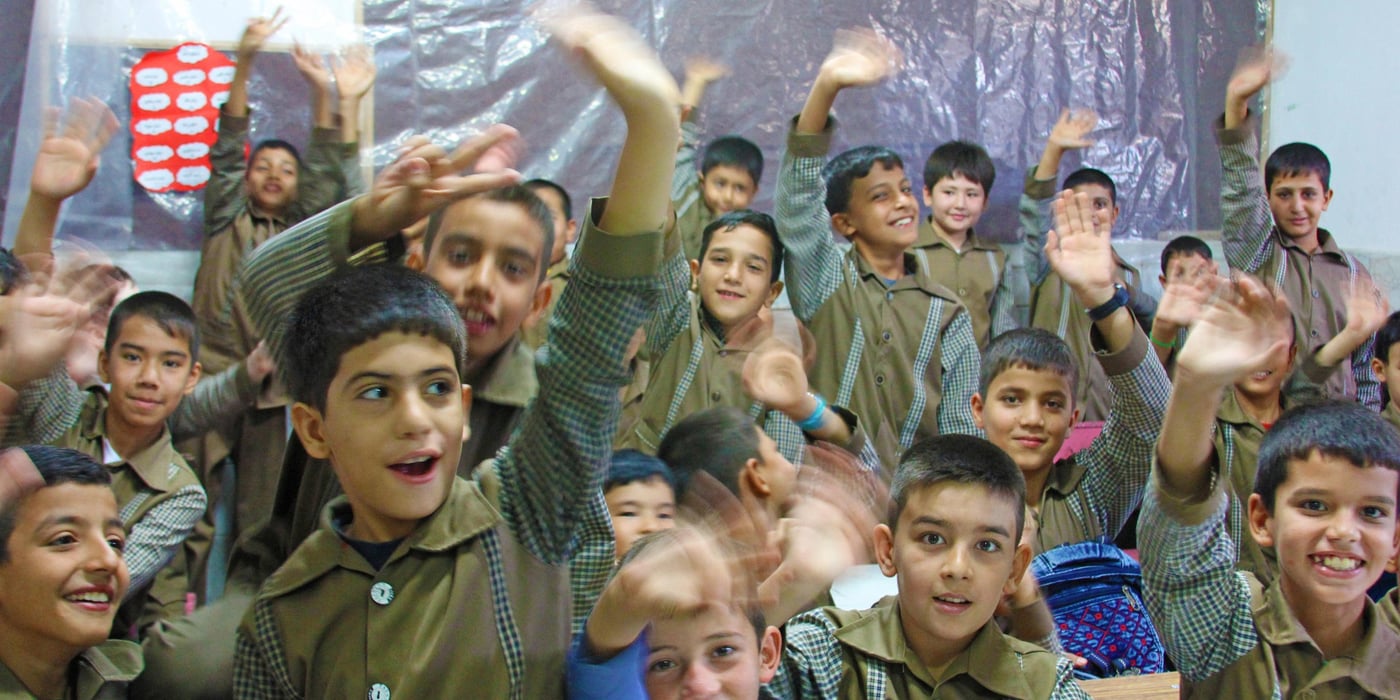
This opinion piece was previously published by USA Today on 6 August 2019.
The recent round of U.S. sanctions is intended to ramp up pressure on the government of Iran, but the real pain will be felt by vulnerable communities already impacted by the punitive action taken against the Iranian economy over a year ago.
As a humanitarian attempting to provide relief to Afghans and flood victims in Iran, I take no stand in the strategic disputes between the two political elites. But I am outraged by the blatant lack of attention toward the suffering caused by parts of the “maximum pressure” policy. The leaders on both sides will eat well, but sanctions have a crippling effect on refugees, the poorest and on the humanitarian work we do for the most vulnerable.
All the political discourse on U.S. and Iran tensions appear to have forgotten that 3 million Afghans, one of the world's largest refugee populations, have been living in Iran for the past four decades. Afghan refugees have been allowed to work in a range of jobs and are entitled to subsidized health care. And since 2015, undocumented Afghan children are granted access to primary and secondary education.
Sanctions hurt the most marginalized
The sanctions are chipping away at this progress and are making it increasingly impossible for Iran's most marginalized to enjoy any quality of life in an economy so strangled. Already, the price of medicine, if available, has shot up and medical treatments have seen serious delays. Sick people of all ages have even struggled to get access to lifesaving medicine, as international pharmaceutical companies cower away from doing business with Iran.
The cost of living has also skyrocketed. According to the Government of Iran's official statistics, consumer items for ordinary Iranians increased by 52% in comparison with the same period in 2018. Red meat and poultry increased by 100%, vegetables increased by 136%, fruit and nuts increased by 112% and cheese, milk and eggs increased by 47%.
According to data from our cash transfer program, some Afghan refugee families are skipping meals, some are relying on neighbours to help them, and some are selling assets to cover the costs. Many Afghans working in tailoring have recently been laid off because of workshop closures due to an increase in raw material prices.
War powers: Trump is wrong about Iran. He needs approval from Congress for a military strike.
When severe economic sanctions are introduced, they hit ordinary citizens hard, but they sucker punch vulnerable communities. Already on the margins of society, the poor and the refugees have no cushion when crisis strikes. Many are wholly dependent on humanitarian aid.
Despite promises that humanitarian goods and services would not be sanctioned, our ability to do effective humanitarian work has been hit with a wrecking ball. Our work is much slower, less efficient and more costly. The Norwegian Refugee Council is the largest of only five international nongovernment aid organizations working in Iran.
My team on the ground tells me how they increasingly spend their time and resources on bureaucracy connected to ever-increasing sanctions, rather than delivering humanitarian aid.
Refugees are collateral damage
The blacklisting of financial transactions with Iran has meant that all humanitarian agencies are struggling to get working bank channels. It is increasingly hard to transfer money to procure basic relief items even for Afghan refugees. In addition, devastating floods in Iran in April left 2 million people in need.
The failure of diplomacy in the U.S-Iran crisis is also bad news for war-torn and disaster-stricken Afghanistan, where the United States is trying to mediate peace with the Taliban. Iran’s neighbour has seen hundreds of thousands displaced by violence and the worst drought in decades.
The number of Afghans in need has nearly doubled and pushed almost 3 million people into emergency levels of hunger. Their situation will worsen as the regular transfer of money from the many working Afghans in Iran to relatives back home will slowly end.
Badly done but for the best: A wobbly Donald Trump decided not to strike Iran. We should be glad.
As humanitarians on the ground in both Iran and Afghanistan, it is our responsibility to bear witness to this neglected but devastating collateral damage of the U.S.-Iranian tensions that appear to escalate each day. There are no refugee voices to be heard in the situation rooms in Washington and Tehran.
The leaders making these decisions will not suffer the consequences, but the poorest will. It is high time people in power look beyond tit-for-tat political measures and acknowledge the serious humanitarian implications that lie ahead for millions of the most vulnerable.
Jan Egeland is secretary general of the Norwegian Refugee Council. Follow him on Twitter @NRC_Egeland.

